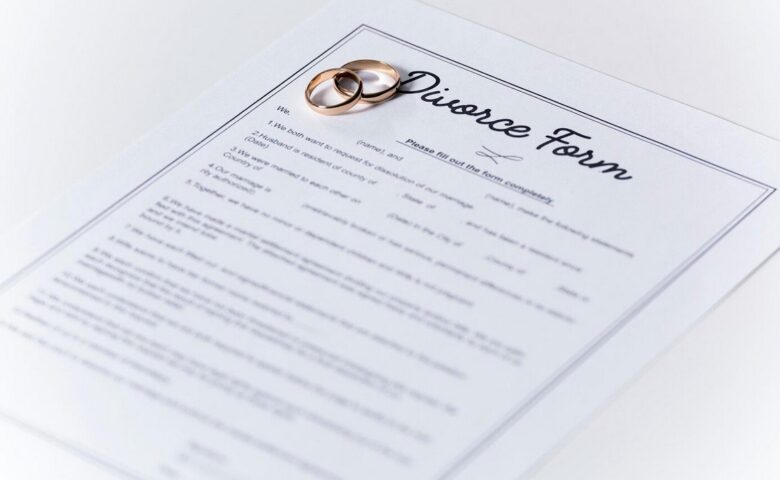When preparing for marriage termination a soon-to-be divorcee must choose amid multiple scenarios of further development of their case. What truly defines the very next steps in your situation is the pick between a contested divorce vs uncontested one. This implies you will have to define whether you are to collaborate with your soon-to-be ex to arrive at mutually beneficial outcomes. Or you can fight to your last breath for divorce victory in court. Discover more about the variants you have and what the aftermath is expected to be and manage your divorce properly without any hesitations.
Contents
What Is Uncontested Divorce
When asking for advice on whether you should go after a contested divorce vs an uncontested one, both in-field experts and your friends will tell you to grant the preference to the uncontested variant. This is the case when you peacefully agree to how you wish to part with your spouse and how your post-divorce interactions will run. You have to note down all your compromises in the divorce forms, get them approved in court and, voit-la!, your marriage has been finalized officially.
Yet, uncontested divorce is not a unique answer to all marital pains. In specific cases, you will get nothing but waste your time and money with no positive results.
What Is Contested Divorce
If you cannot put your finger on a solution that pleases you both, you may bring your divorce proceedings in Texas to the courtroom for a contested process. You and your spouse independently will seek a family lawyer to represent your case in court and try to become in unison on the key marriage termination points through a number of hearings.
Both sides deliver their views on custody, child support, visitation, property division, and more, and add evidence to them. The court analyses the situation and offers a solution that you are to oblige after divorce.
| Contested Divorce | Uncontested Divorce |
|---|---|
| One or both spouses do not agree to the divorce or the terms of the divorce | Both spouses agree to the divorce and the terms of the divorce |
| Often results in a trial or hearing in court where a judge makes decisions on the issues in the divorce, such as property division, spousal support, child custody, and child support | Typically does not require a trial or hearing, as the spouses have already reached an agreement on the issues |
| Can take longer to resolve, potentially several months or even years, due to the court process and legal battles | Can be resolved more quickly, often within a few weeks or months, as there is no need for court proceedings |
| May be more expensive due to legal fees, court costs, and other expenses associated with litigation | May be less expensive since there is no need for extensive court proceedings and legal battles |
| Can be emotionally taxing due to the adversarial nature of the process and potential conflicts between spouses | Can be less emotionally taxing since both spouses have agreed to the divorce and the terms of the divorce |
| May result in a less satisfactory outcome for one or both spouses, since the decision is ultimately up to the judge | Generally results in a more satisfactory outcome for both spouses since they have reached an agreement on the issues |
| Can be necessary when the spouses are unable to reach an agreement or when one spouse is unwilling to cooperate in the divorce process | Is an option when the spouses are able to work together and come to an agreement on the issues |
How Are Uncontested and Contested Divorces Different

Whether you struggle to choose between two options, wonder can a contested divorce be changed to uncontested, or just seek awareness of what to expect from your marriage termination process, you can deal with any issue easier once you see the differences between contested and uncontested divorce. Discover the main of them:
- Time and money – uncontested divorce is a fast and cheap option. If you are to agree without any third-party assistance and craft solutions to key divorce issues with your partner, your process will be of a considerable price. You will most likely have to cover official fees only. Plus, it will take you a little over the waiting period if there is any to be over with your marriage. Meanwhile, the contested process will take you from several months up to a year and tens of thousands of dollars to cope with your divorce case. And there are no guarantees you will be delighted with the aftermath.
- Control – within an uncontested divorce, you and your spouse deliver all the decisions in your case. This implies you can hope for a win-win situation and care about everyone’s comfort after marriage termination. The couples who choose contested marriage termination usually cannot find a compromise on their own, so it is a judge who offers the conditions of divorce resolution which seems to be fair and suitable for the situation. But no one can tell for sure whether your views on equity are the same as the judge’s ones.
- Emotional burden – with bigger expenses, longer duration, more uncertainty, heated conflicts, etc., it is evident that a contested divorce will include more stress and burden for you. In contrast, peaceful marriage termination will feel like another stage in your life, which you can pass smoothly and move forward.
- Legal assistance – you will hardly manage a contested divorce and all the associated legal proceedings without legal assistance. You will have to join forces with a lawyer and any other necessary specialists. While choosing an uncontested one, you can cooperate with your spouse only if the situation is simple enough. This will mean more privacy and fewer expenses for you.
Since the two divorce scenarios are polarly different, they will suit different cases as well. This implies you have to closely assess your situation to pick out the fitting way out without hesitation.
How to Choose Between Uncontested and Contested Divorce

In order to act according to the right strategy for dealing with your marriage termination, you have to clearly understand what you wish and can do with your situation. You can start with your preferences, such as whether you prefer to have a DIY divorce or rely on relevant specialists only. Or whether you are short on budget or are ready to spend more to reach desirable results. In the first variant, the uncontested divorce is the right choice, while in the second you ought to go for a contested one.
Often your choice will depend on the peculiarities of your situation. For instance, whether you are on friendly terms and are open to cooperation or you cannot make your partner commit to amicable marriage termination. Or whether your case is simple and transparent or involves big assets and debts and requires a special approach to custody. Again the first option will mean you can file for an uncontested divorce, while in the second option contested divorce is your only way out.
You may also change your mind midway and switch your divorce scenario to an opposite one. Then you should reach out to your lawyer about how to change a contested divorce to an uncontested one or vice versa without losing the progress you have achieved and wasting extra time and money.
Conclusion
Divorce is a life-turning point you have to weigh seriously before opting for it. But what matters also is how you choose to cope with your marriage termination. This will impact significantly the aftermath and your life after divorce. Explore deeply the differences between contested divorce vs uncontested one, assess your situation to discover what will suit you best, and consult an experienced specialist to avoid any hesitation or mistakes in your case.
